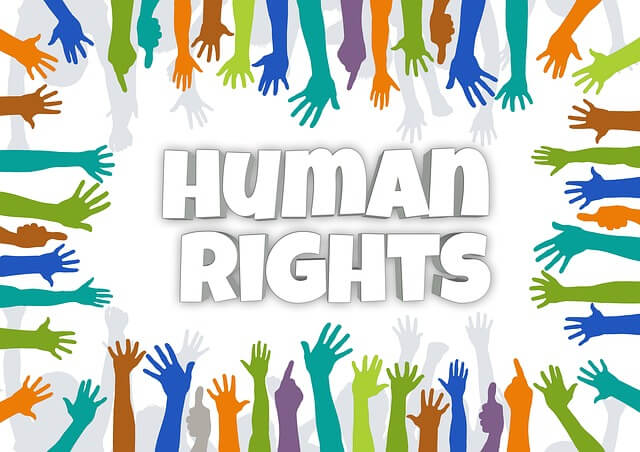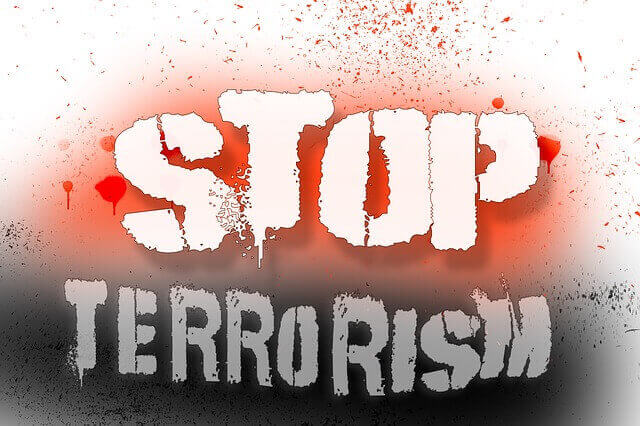Terrorism
المقررات الدراسية موسومة بـ "Terrorism"
Terrorism and the Internet
In this course we will look at some of the ways extremist groups exploit the internet for their own means, and the safeguards and protections that are in place to try and prevent this from happening.
Introduction
In this course we will look at some of the ways extremist groups exploit the internet for their own means, and the safeguards and protections that are in place to try and prevent this from happening.
Terrorist and extremist groups use the internet for a variety of different reasons.
· Recruiting new supporters and members
· Sharing their extremist beliefs and ideas
· Communicating with their supporters and members
· Encouraging others to commit terrorist activity
· Co-ordinating terrorist activity
You will learn
- Understand why terrorists use the internet
- Know where you might encounter extremism online
- Understand what the government is doing to limit terrorist use of the internet
- Know what to do if you encounter extreme content online
Human Rights and Terrorism
In this course, learn what the Human Rights Act is, how it helps to protect people's individual freedoms and when there are exceptions to the Act to prevent terrorism.
Intoduction
The British government takes the freedom, liberty and protection of its people very seriously.This course will focus on an extremely important piece of legislation that was introduced to protect all of our country’s people from anything that will prevent them from enjoying a peaceful and free life: The Human Rights Act 1998.
We will explore a number of sections of these laws in detail. This will help us gain a better understanding of how our laws can help protect us.
4 of 19 – The Human Rights Act
The Human Rights Act 1998 is a piece of legislation that sets out protection in law for everyone’s basic rights and freedoms, known as our human rights.
There are 16 rights covered by the act, with each one addressed in a separate article. The rights protected by the act come from the European Convention on Human Rights.
The Human Rights Act sets out a minimum standard for how the government should treat everyone. When a new law is being considered, it must be checked to ensure it complies with the Human Rights Act before it can be passed.
You will learn
- Know what the Human Rights Act is
- Understand how the Human Rights Act helps to protect people's individual freedoms
- Know when there are exceptions in the Human Rights Act to prevent terrorism
Religious Extremism
In this couse learn about the various kinds of religious terrorism, the history and impact of religious terrorism, and how it affects people around the world.
Introduction
Terrorism is the unlawful use of violence or intimidation, especially against civilians. It has been around for thousands of years, with groups using violence and fear as terrorist acts to spread their messages, control people and seize power.
A religious terrorist group is any group who commit terrorist acts in the name of a religion or religious belief. They are often religious extremists, with extreme religious beliefs.
Religious extremists believe that their religion is the only true one. They have more extreme and violent beliefs than most other people who follow that religion, such as believing all people who don’t believe as they do should be killed, or that women should be kept as slaves.
It is important to remember that being a devout follower of a religion does not make someone a religious extremist or a terrorist.
You will learn
- Understand what religious terrorism is
- Understand what a proscribed group is
- Know some examples of religious extremist groups and terrorist acts
- Understand the core features of religious extremist methodology
Radicalisation
Learn and underatand what radicalisation is and what makes a person vulnerable to it. This course also looks at the signs of radicalisation and what to do if someone you know is showing signs of radicalisation.
Introduction
Radicalisation includes:
• People being persuaded to support extreme religious or racist ideas
• Activities that could lead people on a pathway towards terrorism
• The process by which a person comes to support terrorism and extremist ideologies
• When a person’s beliefs move from being quite ‘normal’ to being extreme and they want to see drastic change
All terrorist groups need to radicalise and recruit people to their cause in order to group their influence and create the change they want to see. Sometimes they want a few people with specialist skills, other times they want to recruit large numbers of people to create a mass of followers capable of creating pressure, such as overthrowing a legitimate government. Recruiters will target people who are more vulnerable as they are easier to persuade.
You will learn
- Understand what radicalisation is
- Understand what makes a person vulnerable to radicalisation
- Know what the signs of radicalisation are
- Know what to do if you spot signs of radicalisation in someone you know.
Our Responsibilities
In this course, learn how to spot the signs of extremism and radicalisation, understand what fake news and propaganda are and what to do about them, understand the importance of judging people fairly and what to do if you encounter extreme or negative content or views.
Introduction
What do you think your responsibilities might be when it comes to recognising and reporting terrorism?
Review each of the responsibilities below and indicate whether they are your responsibility:
• Recognising if someone you know is being radicalised
• Referring potentially radicalised individuals to Channel
• Investigating reports of terrorist activity
• Telling the college or police if you think someone is involved in extremism or terrorism
• Reporting extremist content you encounter online
• Promoting inclusivity by avoiding using stereotypes and derogatory language
Your responsibility
• Recognising if someone you know is being radicalised
• Telling the college or police if you think someone is involved in extremism or terrorism
• Reporting extremist content you encounter online
• Promoting inclusivity by avoiding using stereotypes and derogatory language
Not your responsibility
• Referring potentially radicalised individuals to Channel
• Investigating reports of terrorist activity
You will learn
- Know how to spot the signs of extremism and radicalisation
- Understand what fake news and propaganda are and what to do about them
- Understand the importance of judging people fairly
- Know what to do if you encounter extreme or negative content or views
Non-religious terrorism
In this course, learn about the various kinds of non-religious terrorism, the history and impact of non-religious terrorism, and how it affects people around the world.
Introduction
Terrorism is the unlawful use of violence or intimidation, especially against civilians. It happens when people with extreme beliefs are willing to go to any lengths to impose those beliefs on others, regardless of the cost. Sometimes these beliefs are religious, but other times they are not. Political extremism, such as fighting to gain independence or return a government to a previous way of being, is a common example.In this session we will look at some examples of non-religious terrorism to examine what they have in common with each other.
Under the Terrorism Act 2000, the government can designate a terrorist group as a proscribed organisation. This means there are certain laws that relate to these groups and people who associate with them.
Proscribed organisations:
• Commit or participate in acts of terrorism
• Prepare for terrorism
• Promote, glorify or encourage terrorism
• Are otherwise concerned with terrorism
You will learn
- Be aware of a range of non-religious terrorist causes
- Know which areas of non-religious terrorism are currently of most concern in the UK
- Know some key non-religious terrorist groups in the UK and beyond
Introduction to Prevent
Prevent is one part of the government's counter-terrorist strategies, which is the actions is takes to stop terrorism. In this course you will learn what extremism and terrorism are and understand how the Prevent strategy works to protect poeple of the UK.
Introduction
Prevent is one part of the government’s counter-terrorist strategy, which is the actions it takes to stop terrorism. It is about protecting and supporting people who are vulnerable to being drawn into terrorist groups, to ‘prevent’ them from becoming terrorists. It applies to all children and adults, from any background or religious belief.In simplest terms, Prevent is about stopping people from becoming terrorists or supporting terrorism.
In this session we will look at what the Prevent strategy does, who is responsible for it and how it is delivered. It is important that you know the roles that everyone can play in preventing terrorism.
Terrorism is the unlawful use of violence or intimidation, especially against civilians.
These purposes could be:
• Taking over power in a country
• Gaining independence from a ruling government
• Targeting people of a certain race
• Targeting people of a different religion
Terrorism has been around for thousands of years, with groups using violence and fear as terrorist acts to spread their messages, control people and seize power.
You will learn
- Know what the Prevent strategy is
- Understand what extremism and terrorism are
- Understand how Prevent protects the people of the UK
Counter-Terrorism Legislation
Learn about counter-terrorism legislation, and what powers the goverment have to prevent terrorism in the UK.
Introduction
There are many inter-linked pieces of legislation that have been issued and modified over the years that cover the government's policies relating to terrorism and counter-terrorism.Examples include:
· The Terrorism Act
· The Anti-Terrorism and Security Act
· The Counter-Terrorism Act
· The Counter-Terrorism and Border Security Act
It is not important that you know the differences between them or the exact details of their contents. Instead, in this session we will cover some of the broad topics that these pieces of legislation cover, so that you are aware of how government legislation helps to protect us from the risks of terrorism and terrorist acts.
The various pieces of legislation contain definitions for all the different types of terrorist acts. This is important, because terrorists and supporters of terrorism can only be criminally charged with offences if the things they are doing are illegal. The information in this Act makes it clear what can be defined as a terrorist offence according to the lawYou will learn
- Be aware of the topics covered by counter-terrorism legislation
- Know what powers the government have to prevent terrorism
- Understand some of the ethical considerations of counter-terrorism legislation
CONTEST and Channel
Learn how the four areas of the CONTEST strategy, Prevent, Persure. Protect and Prepare is designed to reduce the risk of terrorism in the UK.
Introduction
The government’s Prevent strategy is part of a bigger plan against the threat of terrorism, called CONTEST (counter-terrorism strategy) . The aim of CONTEST is to reduce the risk to the UK from terrorism, so that UK citizens can live without the fear of their lives being disrupted by terrorist activity.The main headings of this plan are made up of four ‘P’ words; Prevent, Pursue, Protect and Prepare.
Prevent: to stop people becoming terrorists or supporting terrorism
Pursue: to stop terrorist attacks
Protect: to strengthen our protection against a terrorist attack
Prepare: to mitigate the impact of a terrorist attack
You will learn
- Understand what CONTEST is
- Know the four areas of CONTEST and what the objectives of each are
- Understand what Channel is and the support it can provide
- Give examples of individuals who have been helped by Channel.










